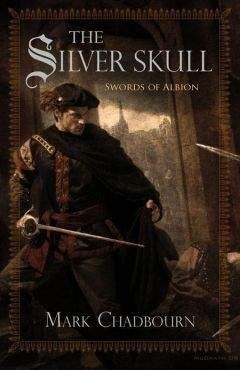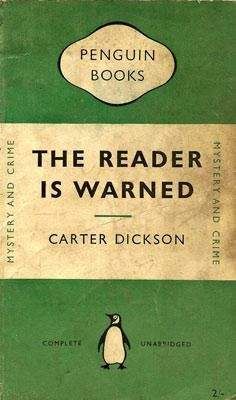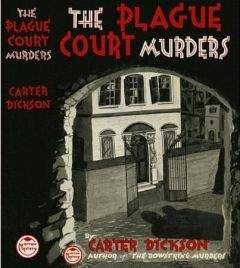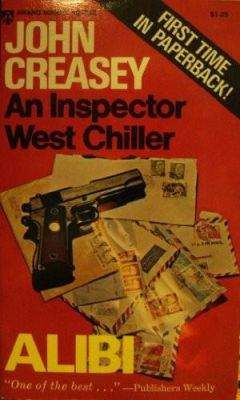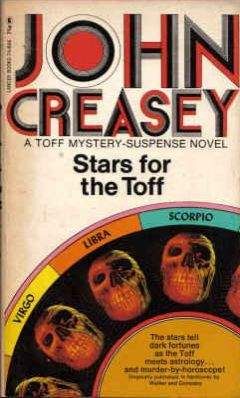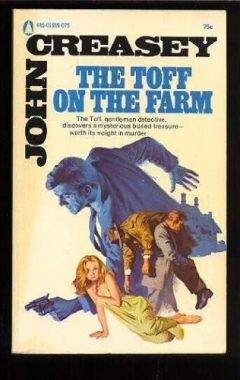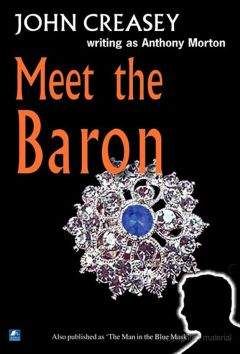John Lescroart - Son of Holmes
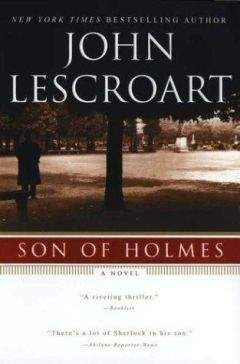
Скачивание начинается... Если скачивание не началось автоматически, пожалуйста нажмите на эту ссылку.
Жалоба
Напишите нам, и мы в срочном порядке примем меры.
Описание книги "Son of Holmes"
Описание и краткое содержание "Son of Holmes" читать бесплатно онлайн.
“Yes, what do you want?” said the guard.
“We’d like to visit, if we may,” Georges replied.
The guard laughed heartily. “Impossible.”
Georges and I looked helplessly at one another, and he began again. “But I’ve been delivering here since you’ve opened. We’d just like to look around inside.”
The guard stopped laughing and blew on his whistle. Within seconds, four other guards had run up, weapons at the ready. I decided to speak.
“I’d like to see Monsieur Ponty.”
At the mention of the director’s name, the guards looked at one another indecisively. Finally one of them went into the building. After about ten minutes, which seemed much longer because of the heat and the circumstances, the guard returned with a short, round, cheerful-looking man.
“You asked for me? I am Monsieur Ponty.”
“Yes. I am a friend of Tania Chessal. She’s spoken so much to me about your operation here. I’d hoped to be privileged with a look for myself. Jules Giraud is my name.”
There was a hint of recognition in his eyes, and he nodded to the guards, who started back to their posts.
“And this man?” he asked, indicating Georges.
“Georges Lavoie, monsieur. He has been delivering your medical supplies for some time, and is a personal friend.”
He stared for another moment. “Come with me.”
We crossed the wide yard of gravel, and I couldn’t help noticing the scrutiny with which we were observed from every direction. There were sentries posted at the gates, along the fence, at selected bunkers in the yard, and on the roof. Ponty seemed to notice my interest, and smiled.
He led us through the large glass doors and down a long corridor to his office, the second room on the right. I was surprised to find it so well furnished. There was a bright rug covering the floor, and several prints on the walls, including Van Gogh’s The Field at Arles which I thought a very strange choice for the director of an arsenal. To the right, behind his desk, were filing cabinets of a light, drab wood; and, to the left, an elegant bar. His desk itself was a flat and large slab of oak which rested on unfinished timbers, although the joints were perfectly matched. It was an efficient office, though not without personality.
We were seated.
“So, you are Jules Giraud. Tania speaks of you often.”
I inclined my head slightly. “She’s quite impressed with you and this place, you know? Have you known her long?”
“Oh, quite some time. I knew her husband before they were married. A fine man. You knew Jean?”
“Yes, he was my neighbor.”
“Ah, yes, yes. Of course.”
I didn’t wish to speak of Jean Chessal, especially to a friend of his. My conscience was not completely clear regarding him.
“And how is Tania?” he asked.
“Quite well,” I said, not entirely truthfully. “She sends her best.”
He smiled. “Do ask her to come by soon. She is a welcome guest anytime. She doesn’t visit nearly enough.”
“I will ask her, though I somehow didn’t think you solicited visitors here. The guards . . .”
We all laughed. Then, in a brusque but friendly way, he clapped his hands together and sat up straight.
“Now, what can I do for you?”
“Well, frankly, we decided to come to see you mostly out of curiosity. Monsieur Lavoie, here, had some deliveries to make, and I had other business in town, which I chose to put off. Tania had told me so much about this building, and about yourself, that I thought I’d come by to meet you and to see some of your innovations.”
“You did, did you?” There was more than a bit of flint in the mildly humorous gaze.
I raised a hand. “Please stop me if I’m out of line.”
“Be assured that I would, monsieur. It is no small matter that you have been allowed to come this far. You’re aware of that, of course.” It wasn’t a question, and he continued. “But then we’ve carried on this farce long enough. It isn’t every day that one meets such a serious rival face-to-face, is it?”
“I’m afraid I don’t completely understand,” I said.
“Come, come, Monsieur Giraud. Surely you don’t think just anyone can enter this compound. And I do think I’m justified in calling it precisely that. Probably there isn’t another man, or men”—here he motioned to Georges—“in France that I would have allowed within these walls without an official reason. ‘Just wanted to look over your innovations! ’ Indeed!” He chuckled at my ludicrous suggestion. “I admit that bringing a visitor along with you, and one with actual business here, is a charming touch that shows real imagination, and I begin to see what Tania is talking about. But let’s admit the facts, that you came by here for the same reason that I let you in—plain curiosity, all right—and not about our innovations.”
Georges picked up the tenuous threads. “He’s found you out, Jules, No doubt of it.”
“All right,” I said, forcing a grin. I had no choice but to press on, hoping that Ponty would drop some further clue as to what he was talking about. “I’ll admit it—I simply had to discover what it was all about.”
The director looked suitably downcast. “It’s about love.”
“Yes,” I answered, “it is about love.”
“She told you, then, about my proposal?”
“Of course,” I said, my stomach sinking since in fact she’d told me no such thing. “Just the other day.”
“Yes, I expected she would have. I must admit I never entertained much hope, but I had to try.”
Again Georges came to my rescue. “She is a remarkable woman,” he said. “Who could blame you?”
Ponty sighed deeply. Then, again clapping his hands softly in what I took to be a characteristic gesture, he regained his businesslike composure. “Well, I am glad to meet you after all. If I have to lose her, it is some comfort to meet the man and realize that he is a gentleman.”
I accepted the compliment with a nod, nearly overcome with relief that Tania had turned him down, then distressed anew by the secrets she kept from me. But this was no time to reflect on that. “I’m sorry if my curiosity seems callous,” I said. “I had no intention—”
“Please,” he said, waving me off, “put the thought from your mind. What could be more natural? But to satisfy your curiosity about me completely, I suppose I should show you our operations here after all, eh? How does the saying go—‘judge a man by his creation’? The St. Etienne arsenal is my ‘creation,’ Monsieur Giraud. It is the thing of which I am most proud.”
At that moment a guard passed in the hall and looked in, prompting Georges to speak up. “Frankly, I’m very impressed with your security.”
“Yes,” Ponty replied. “I doubt rather strongly that anything save a massive assault could cause us much inconvenience. I might add, we don’t envision an assault of that kind around here. Still, considering the kind of work we’re doing, we can’t be too careful. Come.”
We rose and went back out to the corridor. He turned to Georges.
“What is it that you deliver?”
“Medical supplies. Gauze, bandages, no real medicine.”
“Ah, yes. Fortunately, we haven’t had many accidents. I hope we can keep your deliveries small. Now, then”—he stopped in front of the first door we’d passed coming in—“as you know, we make most kinds of arms and munitions supplies here, so really our security amounts to national security. Open that door, Monsieur Giraud.”
I stepped up to the heavy door and found it locked.
Ponty squatted down and slid a card under the door, then knocked four times. The door swung open from within onto a small, closetlike enclosure. On either side of the space sat an armed guard. The room was devoid of decoration and contained only a door against the opposite wall. Ponty walked across the tiny area to that door and tried it, but it too was locked. Then he turned and walked back to us, closing the first door behind him.
“The explosives room,” he explained. “We change the guards every three hours because the anteroom is so . . . you saw it. With every shift, we change the card-and-knock sequence. I don’t mind telling you this because the guards are under orders to shoot to kill anyone who gets them to open the doors by deception. Only myself, my immediate assistant, or the guards’ replacements may be admitted into that room. Anyone else will be shot.”
I said soberly, “But you had me try the door.”
Ponty laughed. “A perfect way to eliminate my archrival, yes? But you see, you were in no danger. Only if you had had my card, knocked four times, and been admitted would you have been shot. I’m sorry if I scared you.”
I held up a hand, laughing hollowly. “I don’t scare that easily.”
He waited for a moment at the door to the explosives room. A janitor pushing a wide broom shuffled his way past us, not so much as lifting his head to acknowledge us. Ponty seemed to be observing him carefully. Clearly the presence of visitors would not be viewed as an excuse to slack off on duties.
“Friendly chap,” I ventured.
Ponty shrugged. “Nervous, I guess. Some of ’em are, here.” He sighed. “I guess it isn’t the easiest thing in the world, working inside what amounts to the biggest bomb in France.”
Georges cleared his throat, and Ponty took that as a signal to continue our tour. The next door down the hallway opened into an enormous cacophonous inferno, but Ponty had no hesitancy about gesturing us in. Four huge boilers hissed and steamed against one wall to our right, while two shovel-wielding stevedores fed coal to the burners under them. The room’s temperature was staggering.
Like a proud homeowner, Ponty walked us around. The boilers were of heavily reinforced steel, loaded with gauges that screamed under their internal pressures. Lining the back wall of the room was a small mountain of coal being slowly chipped away by the workers. Dozens of arteries—insulated piping—emanated from the heart of the arsenal’s power plant.
“What goes on here?” Georges yelled over the din.
Ponty motioned us back outside into the relative cool of the hall. He was beaming. “Impressive, isn’t it?”
“Is every room here frightening?” Georges asked.
“That frightened you?”
“It’s a vision of hell.”
Ponty chuckled. “Well, put like that, I suppose one might say it is, after all.”
“It did seem awesomely powerful.”
He nodded. “It has to be. We’ve got power needs here that I can’t discuss, but they rival those of many small towns. In effect, we’ve got our own generator. We’ve got to be able to control our power, keep it regular, allow no surges. Am I getting too technical?”
“Not at all,” Georges said.
“It’s rather fascinating,” I agreed.
We turned a corner and entered another long and narrow hall. Ponty’s words echoed off the bare walls, mingling with the memory of the other room’s straining engines. I was beginning to feel the building more as a living thing, and could understand Ponty’s nearly paternal pride in its structure as well as his fear for its safety.
“You see,” he said, “although much of the work we do here is production line stuff—making ammunition and so on—there is also a great deal of stress-related research and testing. To say nothing of the power needed to keep a place like this heated and lit over three shifts seven days a week. Those boilers never shut down.”
Georges seemed to be pondering something. “But compared to the ammunition room, they seemed poorly guarded.”
The point seemed to come home to Ponty. “You know, they may be, now that you mention it. But there is so much here that must be guarded full-time—explosives are one example; the research rooms are another—and we do only have so many men. I guess we have to draw the line somewhere.”
“It seems somehow”—Georges paused, looking for the right word—“less thorough, I suppose.”
Ponty stopped before a pair of double doors, which, we would soon discover, led to the development rooms for armored vehicles. But before we entered, he wanted to close the book on this discussion. It probably seemed to him as though we were calling his procedures into question, and he wanted to set the record straight.
“Monsieur Lavoie,” he said, “you forget that you are taking this tour with me, the director. The men shoveling coal in that room are soldiers, as are nearly all members of the staff. Perhaps you didn’t notice the weapons on their belts?”
Georges shook his head.
“Ah, just so. Anyone entering any room here without authorization does so at tremendous risk to his own life, I assure you.”
“And there are always soldiers there?”
“We can never let our power go down. I will tell you frankly, though I can’t be too specific, that certain researches we are undertaking, certain chemicals and so on, are held in an extremely precarious balance by electrical currents and constant temperatures, among other things. Slight fluctuations can be fatal. No, we take extreme care.”
“I’m sure Georges didn’t mean to imply any negligence.” I tried to calm our host.
“Certainly not,” Georges replied. “I was merely curious.”
But Ponty had one more nail to hammer home. “All our rooms are manned at all times. Even my own office, now sitting empty, is guarded. We don’t let up our vigilance, ever!”
I was glad I was with Georges, with his cosmopolitan air. He smiled suavely, including us all into his fraternity. “And we are most grateful for that vigilance, sir. The whole country is grateful.”
Ponty took obvious satisfaction in the compliment. His eyes darted quickly to me and I nodded, hoping my unspoken affirmation would lessen the sense of rivalry.
Georges continued. “The whole thing is just so amazing to me. I’ve come here so often to deliver, and I’ve seen your men loading for large deliveries. The logistics are just too awesome to comprehend. It seems as though every man in France is out there helping load munitions for the front.”
Ponty’s eyes twinkled. He was obviously somewhat taken with Georges. Often in my career and in my life, I’d noticed that once a person has tapped one emotion in another, a door may be opened to other emotions. Georges had angered Ponty, and the director’s response had compromised his natural reserve and professional manner. Once Georges had cooled his anger, the door was open to friendship. We were all, suddenly, members of the same club—men of similar natures caught up in the most serious of endeavors, unable to trust or love or find release from the unbearable tensions of the times.
Ponty smiled warmly now. “I’ll let you both in on something, then, since you’ve been so astute. When we have heavy shipments, everyone helps, even myself. For fifteen, perhaps twenty minutes, we are all pack mules. Except, of course, for the guards at the explosives rooms. They never, ever leave their posts.”
Подписывайтесь на наши страницы в социальных сетях.
Будьте в курсе последних книжных новинок, комментируйте, обсуждайте. Мы ждём Вас!
Похожие книги на "Son of Holmes"
Книги похожие на "Son of Holmes" читать онлайн или скачать бесплатно полные версии.
Мы рекомендуем Вам зарегистрироваться либо войти на сайт под своим именем.
Отзывы о "John Lescroart - Son of Holmes"
Отзывы читателей о книге "Son of Holmes", комментарии и мнения людей о произведении.








